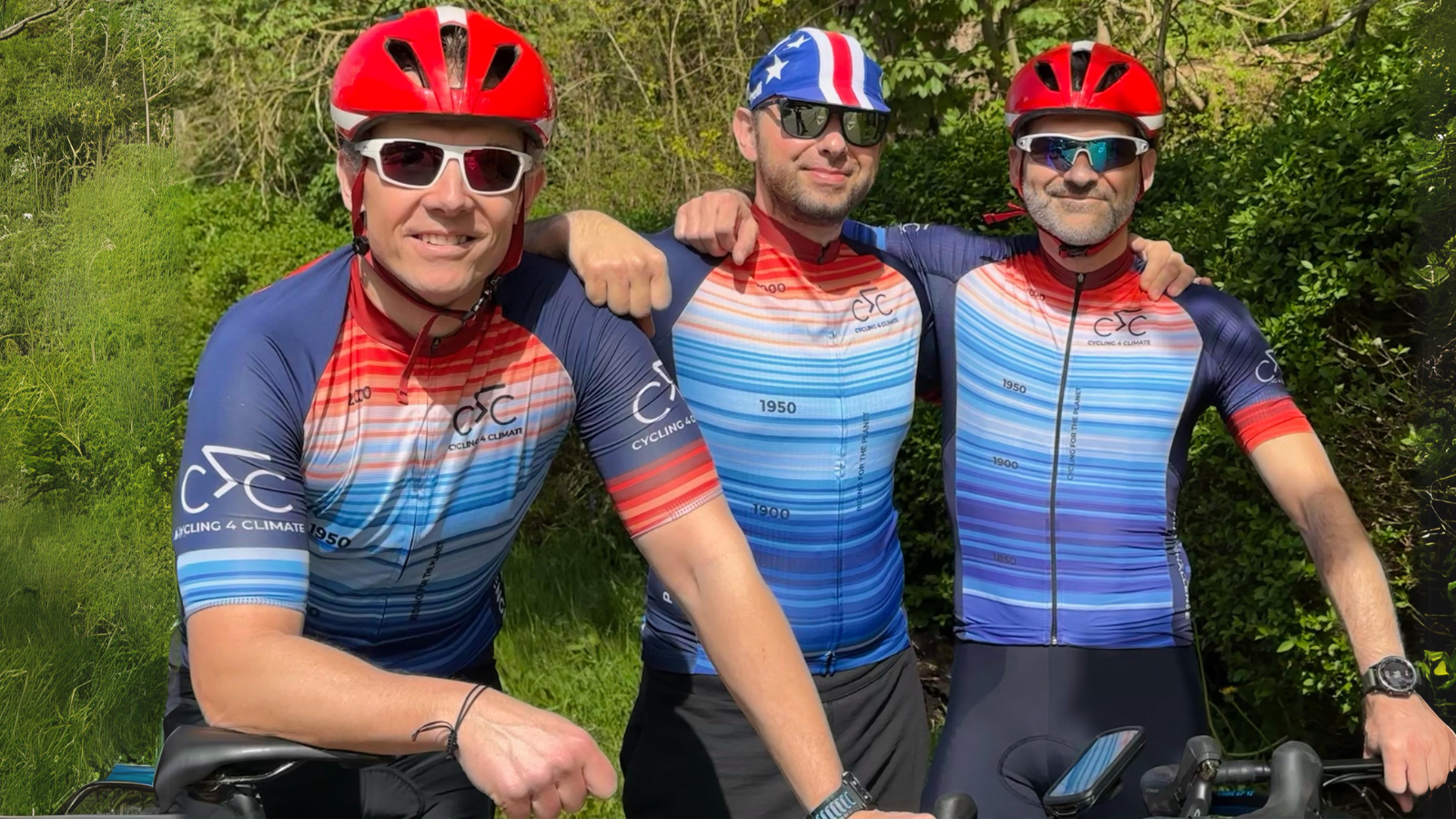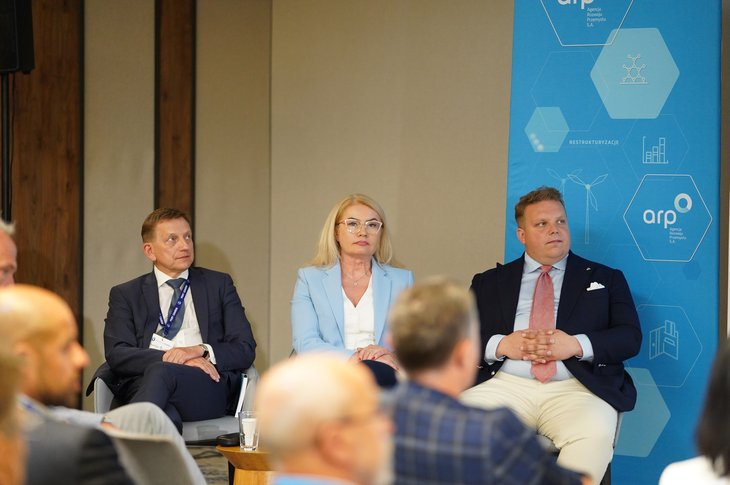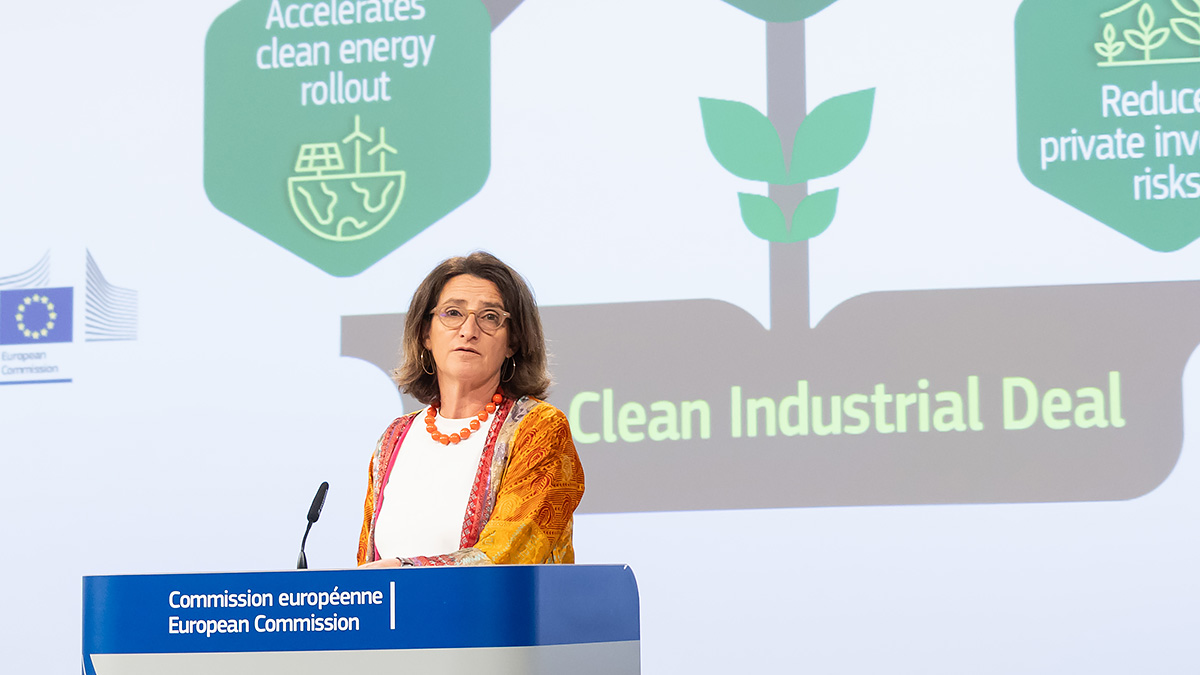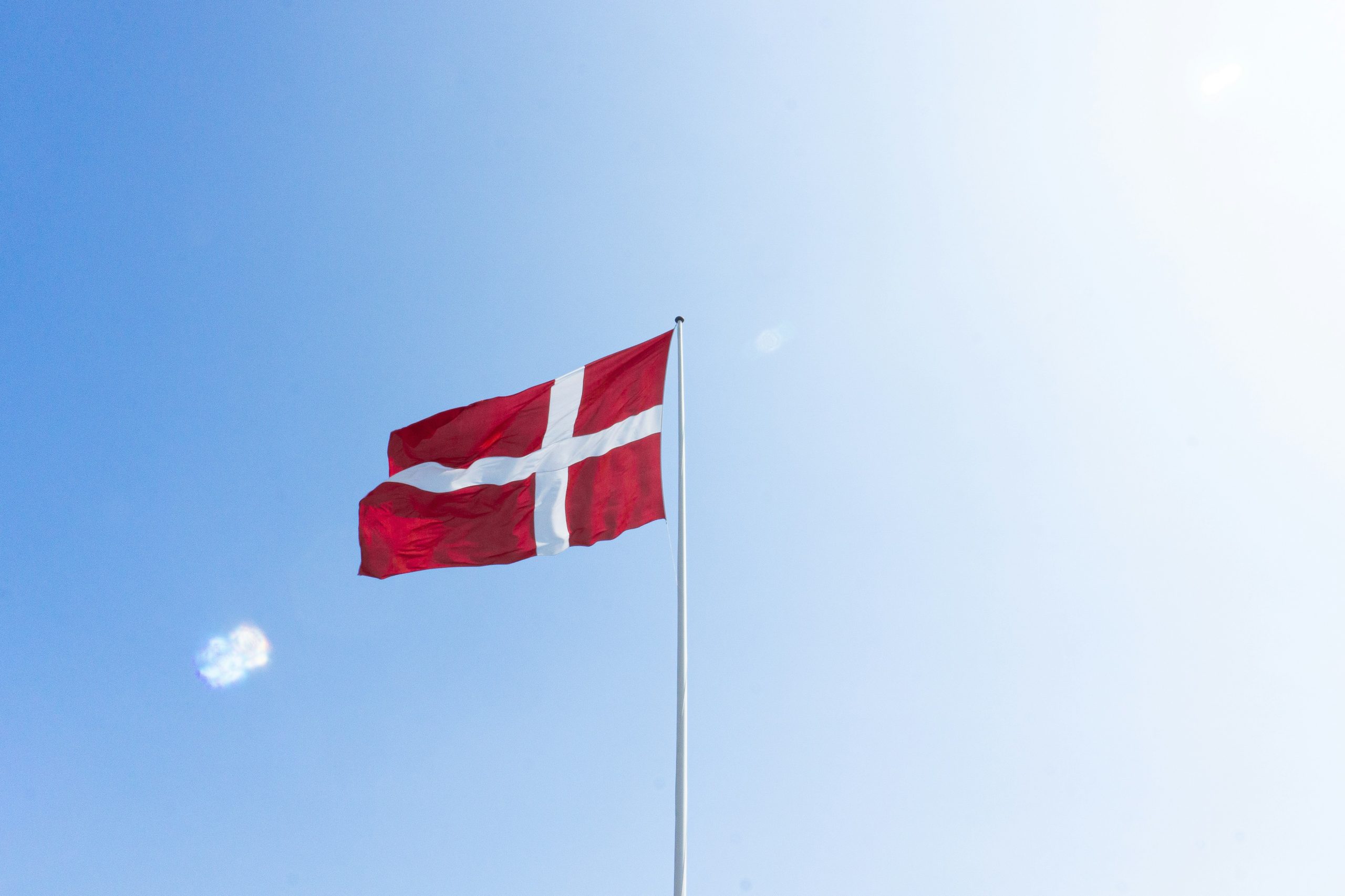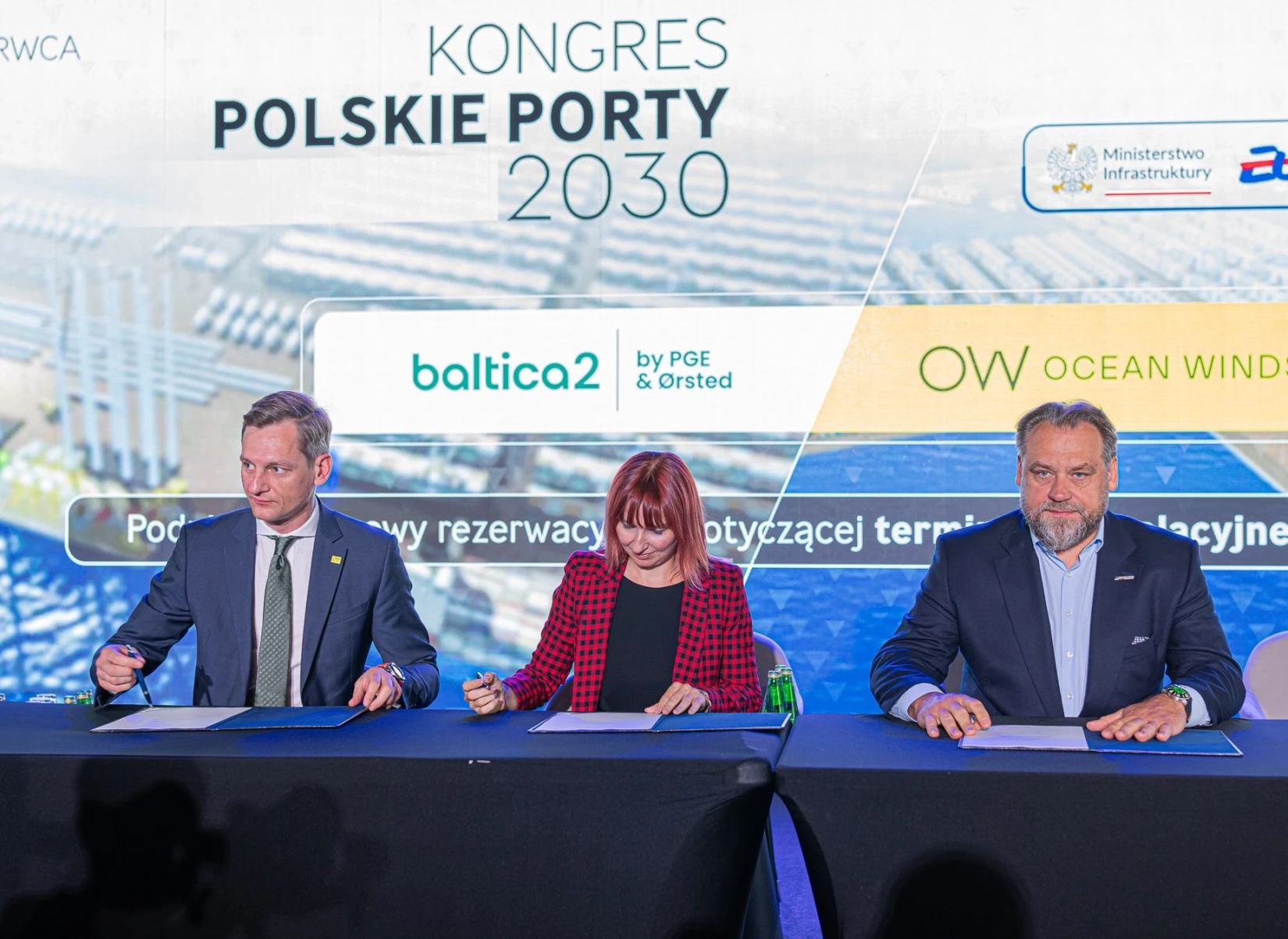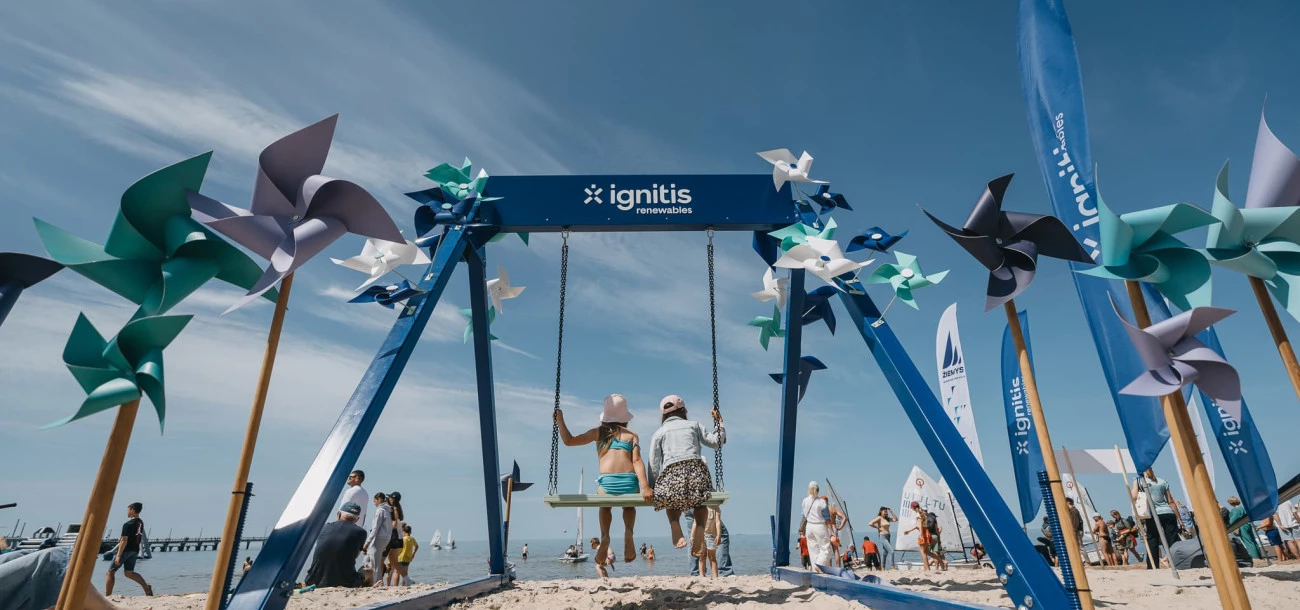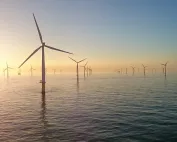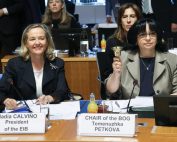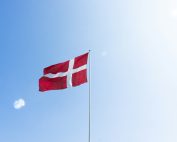A little more than a month is left until the second edition of Climate Classic Poland bike rally. Taking the opportunity that, as Baltic Wind, we are a media partner of the event, I sat down with the three volunteers behind the initiative Dominik Gajerski, Dominik Piotrowski and Piotr Rapacz for a chat.
My goal in this conversation was to find out what the aim of the initiative is, but also whether it actually has any measurable observable effects. Climate Classic rallies have been organised in the Netherlands, Belgium, France and Italy to unite cyclists and draw attention to the problem of rising sea levels as a consequence of a warming climate and melting glaciers. Participants of Climate Classic rallies rode hundreds of kilometres along routes that will be the new coastlines of Europe if climate change continues at its current pace. In the case of the first Polish edition in 2023, nearly 350 cyclists started from Gdańsk and cycled through the Żuławy Wiślane, a region of Pomerania that is partly located below sea level and is one of the most threatened by rising sea levels.
Dominik, Piotr and Dominik. Thank you for meeting with me. Could you tell us about the goals and mission of the Climate Classic bike rally?
Yes, the Climate Classic bike rallies, initiated by the Cycling 4 Climate foundation established in the Netherlands in 2019, aim to unite the cycling community to draw attention to the negative consequences of climate change and mobilise individuals towards specific action. Their mission is to raise awareness about the urgency of tackling climate change and encourage both participants and broader society to adopt more sustainable lifestyles. By engaging cyclists in challenging routes that symbolise the collective effort needed to slow down climate changes, the event promotes personal commitment to reducing carbon footprints and underscores the power of community action in addressing environmental issues.
How successful was the first edition of the event in Poland?
The success of the first edition greatly exceeded our expectations both, in terms of interest it attracted, and the number of participants. Close to 350 participants undertook to ride through the Żuławy Wiślane. Collectively, they have cycled 50.000 km in one day! Each participant made a personal pledge to reduce their carbon footprint, demonstrating a significant collective commitment to environmental awareness and action. Of course it would be too optimistic to believe that every single participant was driven by concern for the environment and that pledges were fulfilled to the letter. However, judging by exchanges with a large number of cyclists, I can claim that we managed to get them thinking – not only about the consequences of global warming but also about what they could do about it. Assuming conservatively that only every fifth participant fulfilled their pledge, we still managed to reduce CO2 emissions by approximately 30 tons per year! Approximately a thousand trees would be necessary to absorb such an amount.
The Climate Classic rally emphasizes the importance of reducing carbon footprints. Can you elaborate on how this works in practice? How can participants calculate and commit to reducing their carbon footprints?
Participants in the Climate Classic rally are encouraged to calculate their carbon footprint as a first step towards understanding and reducing their environmental impact. Our content partner, Carbon Footprint Foundation, puts a nifty online calculator at the disposal of the participants to calculate their individual carbon footprint. We’ve put together some suggestions covering aspects of daily life such as energy consumption, travel, diet, and more to help the participants define their pledge.
Could you share some specific best practices promoted by the Climate Classic rally to minimize waste and promote sustainability?
No one likes to be told what to do, especially when they are required to give up things that they consider comfortable or symbolic of their social status. Therefore we are not encouraging people to revolutionise their daily lives but trying to show that even small changes can make a difference and that such modifications are easier and less painful to implement than it may seem at first sight. Actually making your life more climate-friendly can have a number of positive implications. Slightly reducing the temperature at your house will be barely noticeable but can save some money. Taking a closer look at your consumption will probably make you realise that your wardrobe is already full of shirts and jackets, and you really don’t need a new one just because that new pattern looks so nice. Cycling to work instead of going by car is bound to make you fitter, while reducing the consumption of meat can contribute to a healthier and more varied diet. Finally, going on holiday to a destination that is reachable by train can be as enjoyable as jetting off to a far away tropical island – and most probably cheaper.
What new initiatives or enhancements can participants expect from the 2024 edition of the Climate Classic rally, and how do these contribute to the event’s overall environmental goals?
First and foremost, we are trying to reach more people with our message. This involves raising the profile of the event and creating some attractions that will draw a larger crowd than just cycling fans. This year’s rally will start from the courtyard of Hevelianum, a popular science museum located on a picturesque hill in the heart of Gdańsk. The event village will offer attractions and workshops for the families of participants and young people, aimed at fostering a love for cycling and environmental care.
An event like this wouldn’t be possible without partners and sponsors. How do you collaborate with partners, such as businesses and local authorities, to promote environmental awareness and sustainability beyond the event itself?
The Climate Classic rally collaborates with a range of partners, including businesses, local authorities, and environmental organizations, to amplify its environmental message. By working with strategic partners such as InPost and the Wind Energy Associations, as well as local government bodies and environmental foundations, the rally extends its influence beyond the cycling event itself, promoting sustainability practices among businesses and encouraging them to reduce their carbon footprint. These partnerships help to disseminate environmental awareness more broadly and encourage sustainable practices within the wider community.
In cooperation with the Tricity (Gdańsk-Gdynia-Sopot) Metropolitan Area we started an information campaign in social media focused on highlighting the ways in which the European Union is promoting cycling. Another set of social media posts – this one in collaboration with Carbon Footprint Foundation – focuses on environmentally friendly practices such as recycling or taking care of cycling gear to prolong its use. After last year’s event, surplus from sponsors’ contributions was donated to a local school to finance sustainability initiatives.
Can you provide insights into the logistical aspects of organizing the Climate Classic rally, particularly in terms of ensuring minimal environmental impact and maximizing participant engagement?
We are convinced that one should lead by example and therefore want the rally’s carbon footprint to be as low as possible. We encourage participants to travel to the event by public transportation. Symbolically, two of the organisers, residing in Belgium, plan to cycle 1400 km to Gdańsk, embodying the event’s commitment to minimising emissions.
Building upon the experience gained last year, we will try to eliminate, or at least reduce, practices that are not environmentally-friendly. We want to minimise waste at the rally village and at refuelling stations, for example by providing tap water instead of bottles. At the rally village we will not use a diesel generator but get electricity from the grid. Our support staff on the course will be driving motorbikes that generate less emissions than cars, and we will also have two electric service cars. After finishing, cyclists will be served a vegetarian meal.
In line with our calls for reasonable consumption, we are trying to reduce the amount of products necessary for the rally, especially those that are unlikely to be re-used. By offering a significant discount on the entry fee, we encourage participants to use last year’s jerseys. Cyclists were also given an option not to order medals, and we will not print starting numbers. Finally, we asked our sponsors not to offer participants commercial gadgets.
Thank you for the conversation.
Those interested in participating in this year’s edition can register at climateclassic.pl
